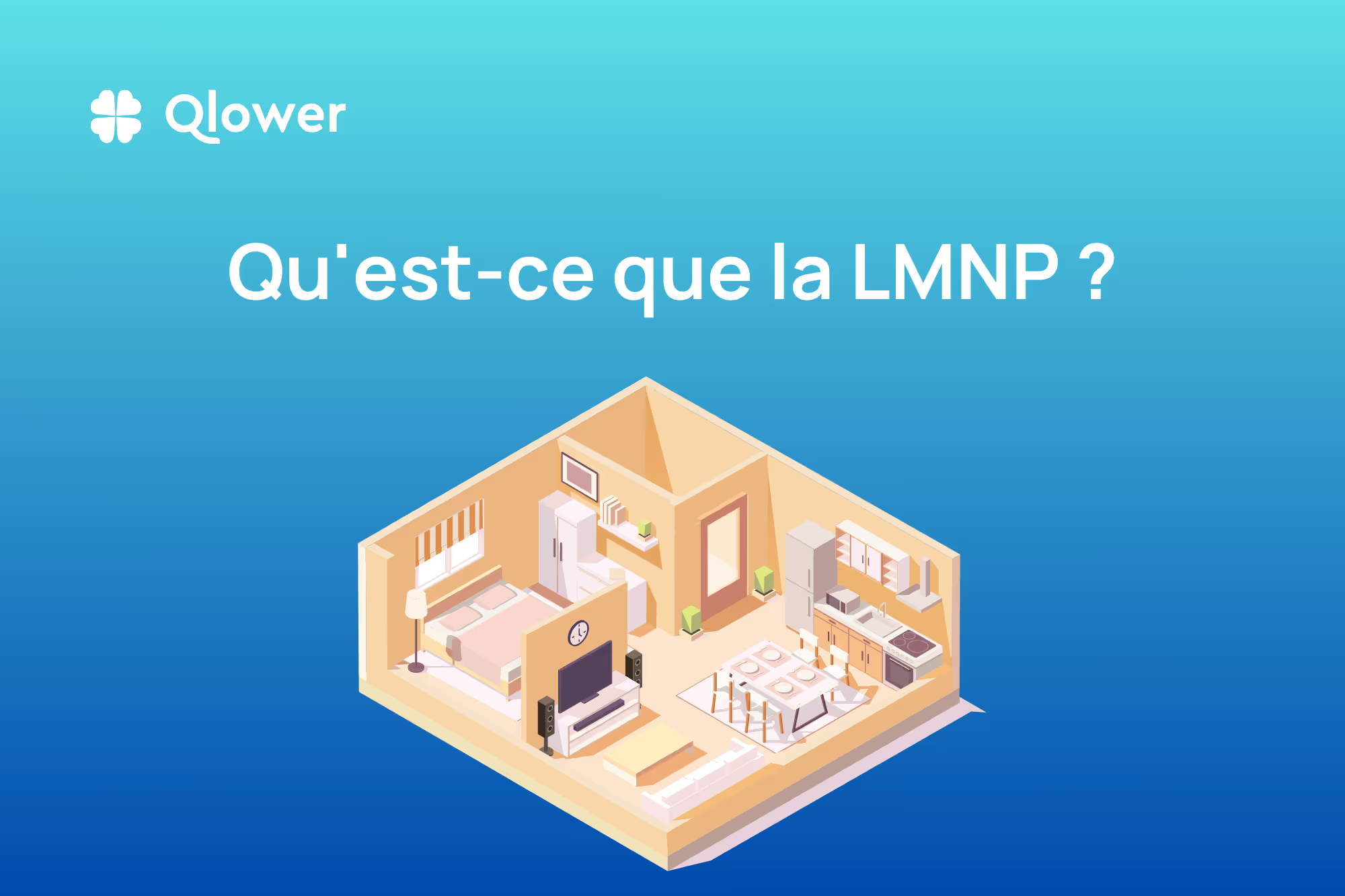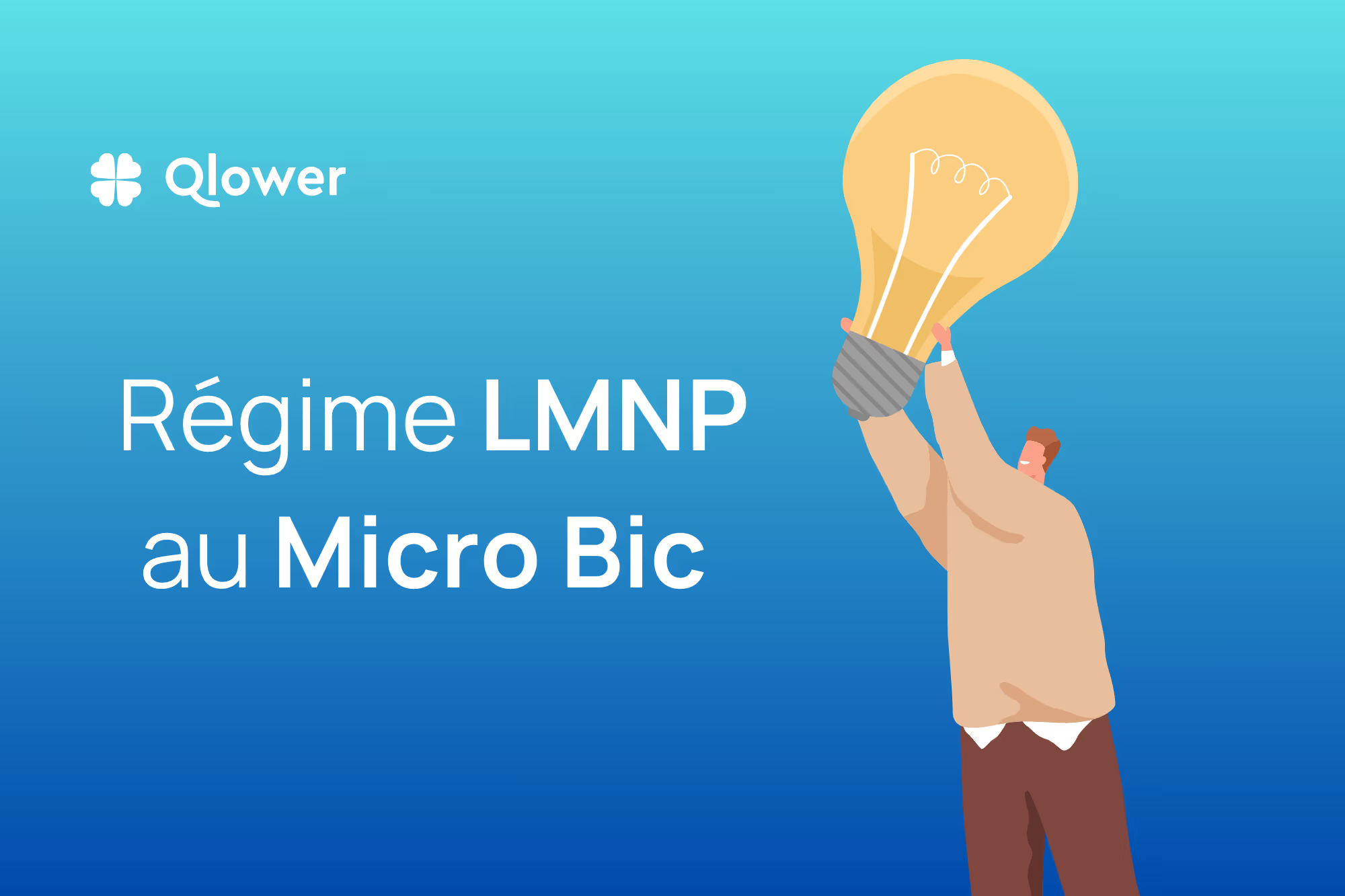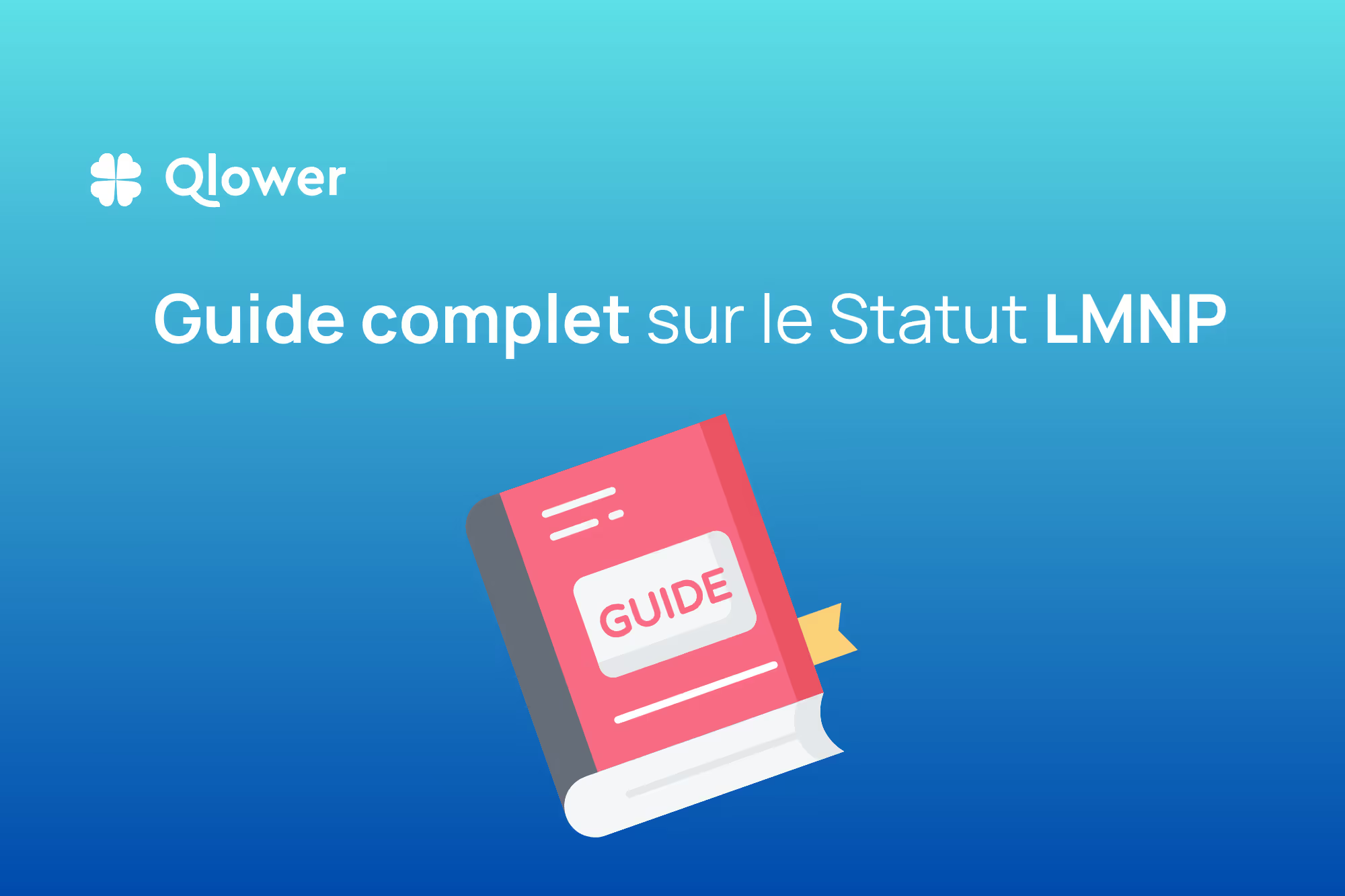LMNP: 2025 Complete Guide to Non-Professional Furnished Rentals
Non-Professional Furnished Rental (LMNP) has become an increasingly popular option for owners, investors and tenants, especially in large and medium-sized cities.
Ce LMNP 2025 guide aims to support you at every stage of the creating your LMNP status, starting with an essential step: understanding and completing the activity creation form, formerly called P0i form. Whether you are a beginner or an experienced investor, this guide will help you navigate this process, highlighting key aspects and best practices to follow.
What is the LMNP?
Non-Professional Furnished Rental (LMNP) is a French tax status allowing owners to rent furnished real estate while benefiting from tax advantages. The income generated by the LMNP is considered as Industrial and Commercial Profits (BIC) and can be declared under two tax regimes: BIC-micro or BIC Real.
In LMNP, homes must be equipped with furniture and accessories necessary for immediate housing, according to a list established by the government available here (service-public.fr). This status is available to any owner wishing to rent their furnished property, whether for a short or long term, provided that the annual revenue does not exceed certain thresholds set by law.
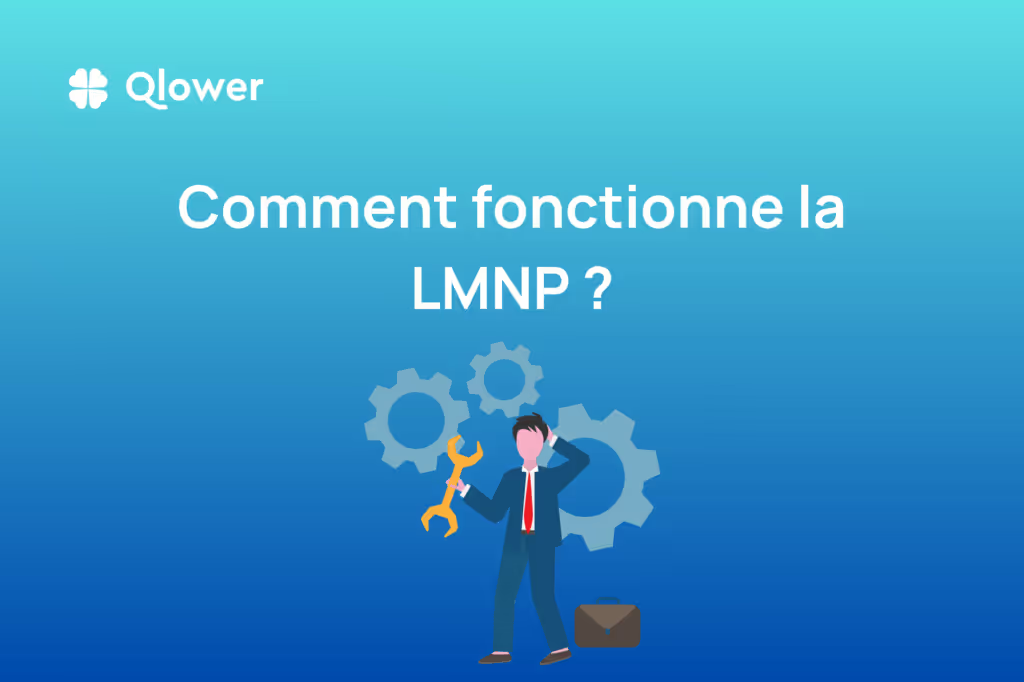
How does the LMNP work?
For Declare this LMNP income, two possible options: BIC-micro or BIC-real. The BIC-micro regime offers a flat rate reduction of 50% on the rents received, while the BIC-Réel allows the deduction of real expenses and the deduction ofdamping real estate. This option offers owners flexibility in the management of their property and tax optimization. Landlords must comply with certain administrative and accounting obligations, in particular theObtaining a SIRET number and the annual declaration of rental income. The LMNP attracts with its advantageous taxation and flexibility, while requiring careful management and most often accounting and fiscal support.

What types of property are taken into account in the LMNP?
Under the LMNP, various types of real estate can be offered for rent. This variety allows investors to choose the type of property that best fits their goals and investment strategy. Here are the main types of property eligible for LMNP.
- Classic apartments and studios : these accommodations are the most commonly rented furnished. They attract a variety of customers, including students, professionals on the move, or people in transition from housing. These properties generally offer good profitability, especially in urban areas with high rental demand.
- Service residences : this type of property includes student residences, residences for seniors, care institutions, and tourist residences. These residences offer additional services (such as catering, cleaning, or security) and represent a particular niche for LMNP investors. They often allow you to benefit from a commercial lease integrating rental management. The owner then depends on a professional operator for all aspects of rental management.
- Bed and breakfasts and cottages : the cottages are intended for temporary customers and can also be operated by LMNP. They require a more active presence from the owner and offer a more personalized experience. The activity of bed and breakfasts including services (breakfast, regular cleaning of premises, supply of household linen for example) falls under the tax regime of para-hotels and not that of furnished rentals.
- Atypical housing : properties such as lofts, transformed artist studios or light homes (such as mobile homes) can also be operated in LMNP. They often attract customers looking for unique experiences and can be an attractive, although often seasonal, source of rental income.
- Flatshares and coliving : the LMNP is also adapting to current trends such as roommates and coliving, which meet a growing demand for flexible and affordable housing. These forms of rental offer the advantage of diversifying sources of income and reducing the risk of non-payments.
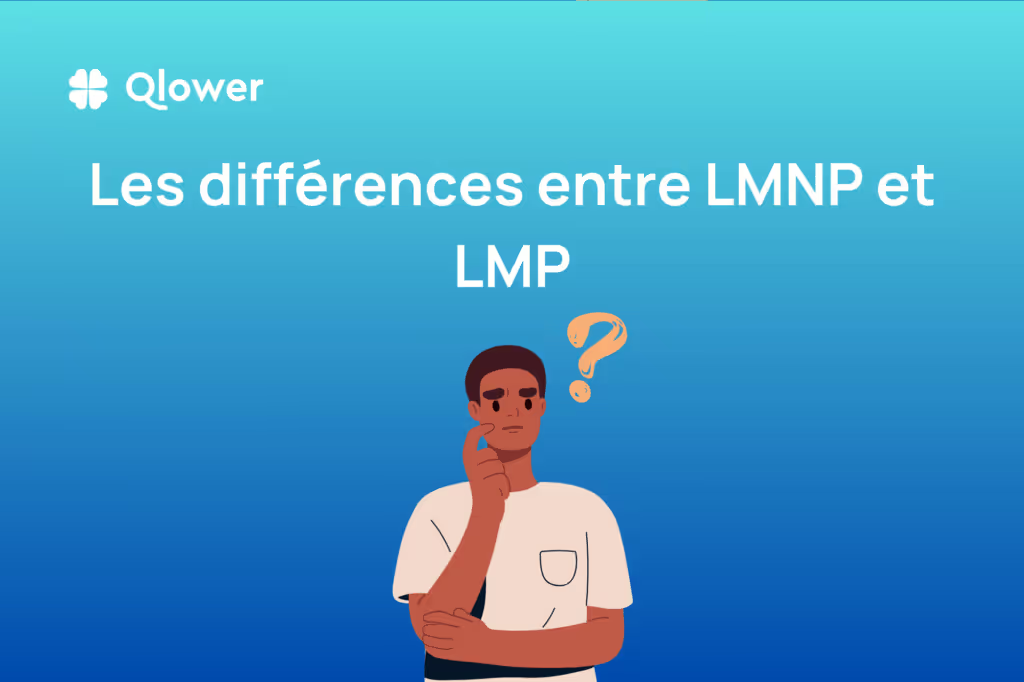
The differences between LMNP and LMP
Non-Professional Furnished Rental (LMNP) and Professional Furnished Rental (LMP) are two tax statuses in France for renting furnished real estate, but they have significant differences in terms of conditions, benefits and obligations. Understanding these differences is essential for investors looking to optimize their tax and rental management strategies.
Qualification criteria
- Rental income : to be classified as an LMP, the owner must generate more than €23,000 in annual revenue from furnished rentals, and these revenues must represent at least 50% of the total amount of the tax household's professional income (salaries, other BICs, etc.). In LMNP, the owner must generate less than €23,000 and prove that income from activities residing in France is greater than furnished rental income.
- Registration in the commercial register : LMPs must be registered in the Trade and Companies Register (RCS), which is not mandatory for LMNPs where a Siret number is sufficient.
Tax treatment
- Taxation of profits : both in LMNP and LMP, the benefits are categorized as Industrial and Commercial Benefits (BIC). However, LMPs can deduct their deficits from their total income, while LMNPs can only deduct deficits from incomes in the same category. One LMNP deficiency is therefore carried over to the following fiscal year.
- Capital gains regime : in LMNP, capital gains are taxed according to the regime of capital gains for individuals, with an allowance from the 6th year of ownership and a total exemption after 22 years for income tax and 30 years for social security contributions. In LMP, capital gains are treated as professional capital gains, with a partial exemption if more than 5 years of practice and revenue between €90,000 and €126,000 or total if more than 5 years of practice and revenue less than €90,000.
- VAT : the LMNP status like the LMP status is not subject to VAT, except in the case of a commercial lease with a hotel operator or a para-hotel activity.
Social obligations
- Social contributions : LMPs are subject to RSI social security contributions on their rental income and short-term capital gains, while LMNPs are not subject to these contributions except under certain specific conditions, such as for seasonal rentals generating more than €23,000 in annual turnover.
- Social Security Affiliation : LMNPs can join the general Social Security regime if the turnover is less than €76,200, unlike LMNPs.
Other differences
- Real Estate Wealth Tax (IFI): LMNP properties are subject to IFI, while LMPs can benefit from an IFI exemption if furnished rental activity is their main professional activity, if the revenue is greater than €23,000 and if the net income from the activity represents more than 50% of professional income (pensions and pensions are excluded from the calculation).
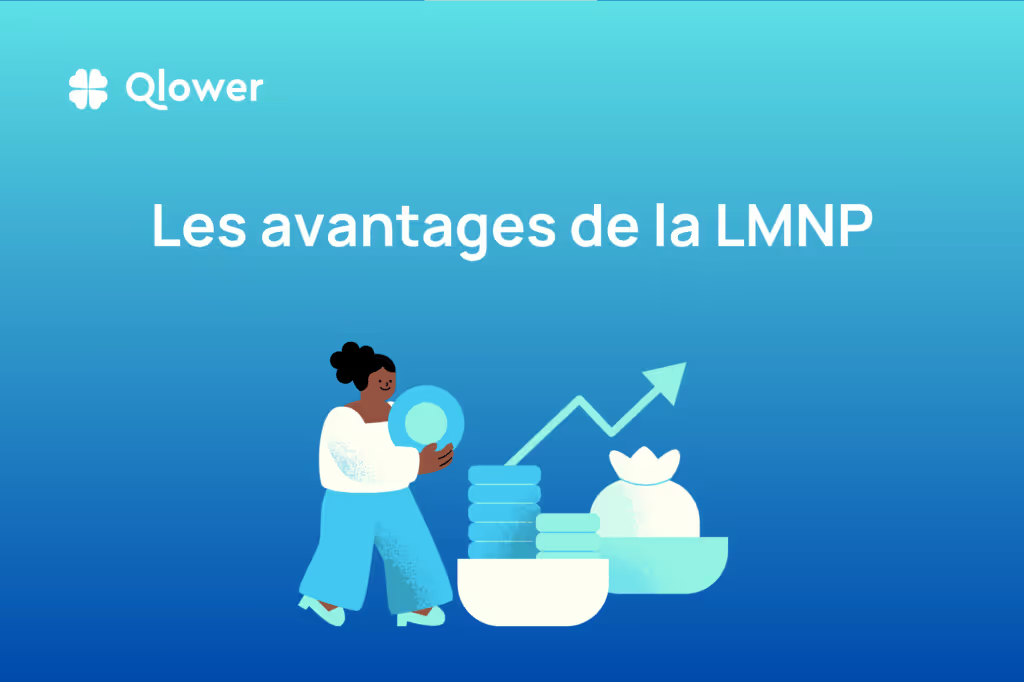
The advantages of the LMNP
Attractive taxation:
Non-professional furnished renters benefit from attractive taxation. Under the BIC-micro regime, a 50% reduction is applied to the rents received, and can even reach 71% for furnished rentals classified as tourism outside the tense zone. The Real regime, on the other hand, allows the deduction of numerous expenses and the depreciation of the property, which can result in reduced or even zero taxation for several years.
Discover the best tax regime for you
Flexibility in rental management:
The LMNP offers more flexibility in lease contracts, in particular with shorter rental periods (generally 12 months renewable) compared to bare rental. This flexibility attracts a wide range of renters, such as students and young professionals.
Rental income security
LMNP rents are often higher than those for bare rentals (+15%), and the unpaid rate is generally lower, which ensures better profitability and financial security.
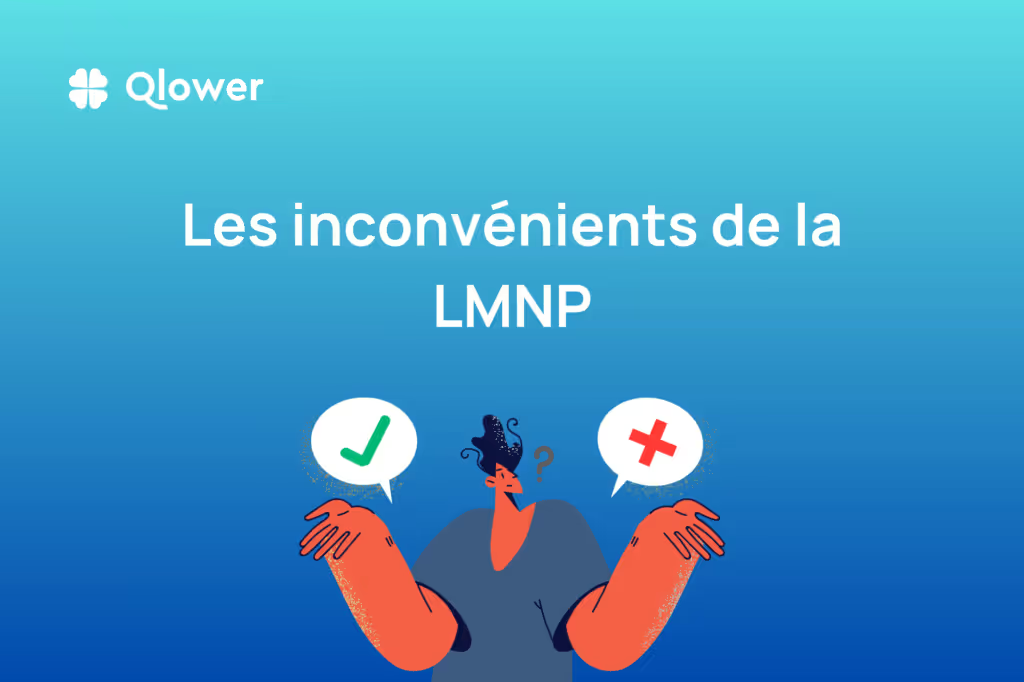
The disadvantages of the LMNP
- More active management and tenant turnover : the management of a furnished rental can be more restrictive due to the greater frequency of changes of tenants and the needs related to the equipment and maintenance of the property. You will then have to manage the process of departure and arrival of tenants more often, approximately every 2 years instead of every 4 years on average for a bare rental. In the case of delegated management by a real estate agent or property manager, rental fees are therefore more frequent.
- More complex accounting : accounting management is more demanding in LMNP, especially under the Real regime, where it is often necessary to use accounting support or a tool like Qlower! The choice of BIC-micro tax regime, although simpler, may prove to be less advantageous from a fiscal point of view. Be sure to perform a tax simulation before deciding on the Micro or Real tax option.
- Slightly higher initial investment : renting a furnished property requires an additional investment in the purchase of the necessary furniture and equipment. Replacing them can also generate additional costs.
- Geographic restrictions : furnished rentals are generally more suitable for urban areas, where the demand for this type of housing is greater.

How do I become a non-professional furnished renter?
Becoming a non-professional furnished rental company (LMNP) is an approach accessible to many investors, but it implies compliance with certain conditions and specific procedures. Here is a detailed guide to help you understand how to invest and get started in LMNP.
Who can invest in LMNP?
Anyone, whether resident in France or not, can invest in LMNP, provided they own or acquire real estate in France and overseas and furnish it. Investors can be individuals, couples, married, married, civil or not, or even groups of individuals with or without family ties. You don't have to be a real estate professional to become a non-professional furnished renter. This flexibility makes LMNP attractive for a wide range of investors, from beginners to the most experienced.
The conditions to be met to be a renter
To be qualified as a non-professional furnished rental company, several conditions must be completed:
- Possession of a furnished property : the property must be properly furnished and equipped for immediate residence, in accordance with the standards established by legislation.
- Revenue ceiling : the annual revenue from furnished rentals must not exceed €23,000 or must be less than the other income from activities of the fiscal household.
- Activity statement : it is necessary to declare the furnished rental activity to the tax authorities and to obtain a Siret registration number.
The creation of the LMNP status
The creation of the LMNP status involves several key steps:
- Registration and obtaining a SIRET number : the lessor must register and obtain a SIRET number. This administrative procedure to be carried out with the INPI or to be entrusted to a formalist is mandatory in order to comply with fiscal and accounting obligations related to the LMNP. This step is called the declaration of activity. Some still call it the P0i form stage.
Get your SIRET number with Qlower
Tax option choices: BIC-micro or BIC Real
Choosing the tax option is an important decision for any non-professional furnished rental company. Two options are available:
- BIC-micro : this regime offers a flat rate reduction of 50% on rental income, or even 71% for rentals classified as tourism outside the tense zone, thus simplifying tax reporting. It is suitable for owners with moderate rental income and low expenses.
- Real BIC : more complex, this regime allows the deduction of real expenses and allows the depreciation of the depreciation of the property to be deducted. It is most often more advantageous for owners with significant expenses such as a loan, or who want to optimize their taxation over the long term.
Do you want to explore tax advantages adapted to your investor profile? Evaluate your taxation at Réel Bic and Micro Bic now
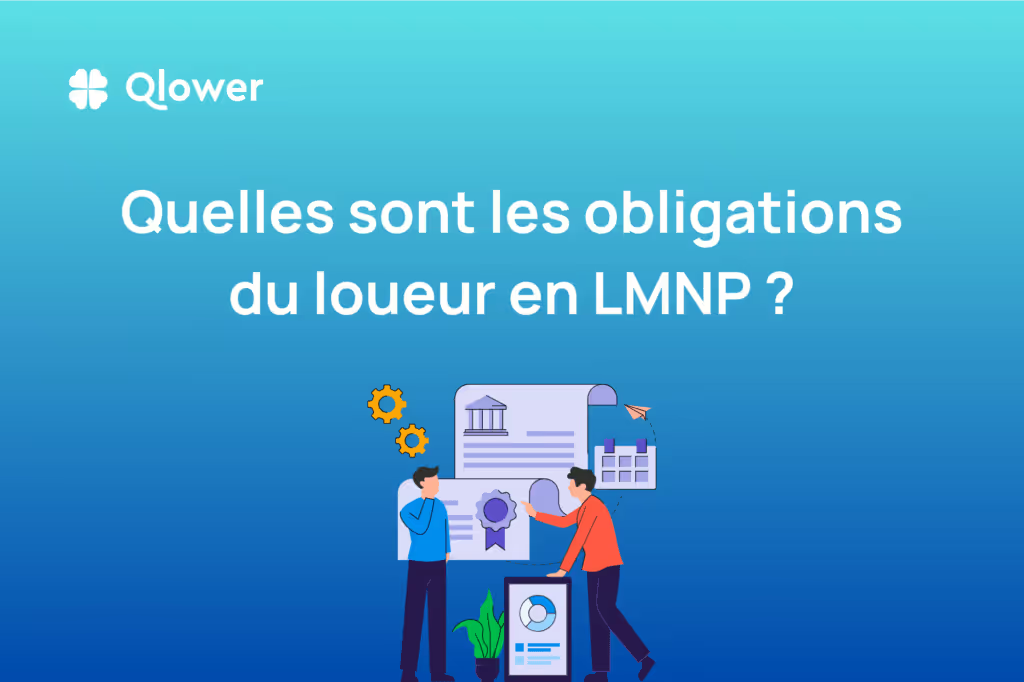
What are the obligations of the lessor in LMNP?
As a non-professional furnished rental company (LMNP), a set of obligations must be respected to ensure the compliance of your real estate investment. These obligations cover fiscal, accounting, and regulatory aspects. Here are the main obligations that an LMNP lessor must comply with.
The LMNP tax return
Tax reporting is a key step for any LMNP rental company. It involves several important elements:
- Declaration of rental income : the income generated by furnished rentals must be declared to the tax services. Depending on the tax regime chosen (Micro BIC or real regime), the reporting method varies.
- Declaration of start of activity : when renting your property for the first time, you must declare this activity to the tax services and get a Siret registration.
- Annual declarations : each year, you must declare your rental income using the appropriate form, according to your tax regime.
LMNP accounting
La accounting management is an important aspect of the LMNP, especially for renters who opt for the real regime. Accounting requirements include:
- Keeping detailed accounts : it is necessary to keep track of all income and expenses related to furnished rentals. This includes rent, expenses, maintenance costs, and depreciation.
- Recourse to accounting support : although not mandatory, the help of a chartered accountant is recommended. Otherwise, using a tool like Qlower ensures that LMNP owners meet all compliant and optimized administrative and fiscal obligations.
- Membership to a CGA also offers third party control and a reduction in taxes on all your accounting expenses
Make an appointment with a Qlower expert
Compliance with safety and habitability standards
To offer a furnished rental, it is imperative to respect safety and habitability standards. These standards include:
- Adequate housing equipment : the property must be furnished in such a way as to allow immediate occupancy. Legislation defines a Precise list of furniture and the necessary equipment that you can find here: What is a furnished residential unit? | Service-public.fr
- Compliance with safety standards : electrical and gas equipment, and safety devices must comply with current standards to ensure the safety of tenants.
- Regular maintenance and care : the owner is responsible for the regular maintenance of the property to ensure its habitability and its proper functioning.
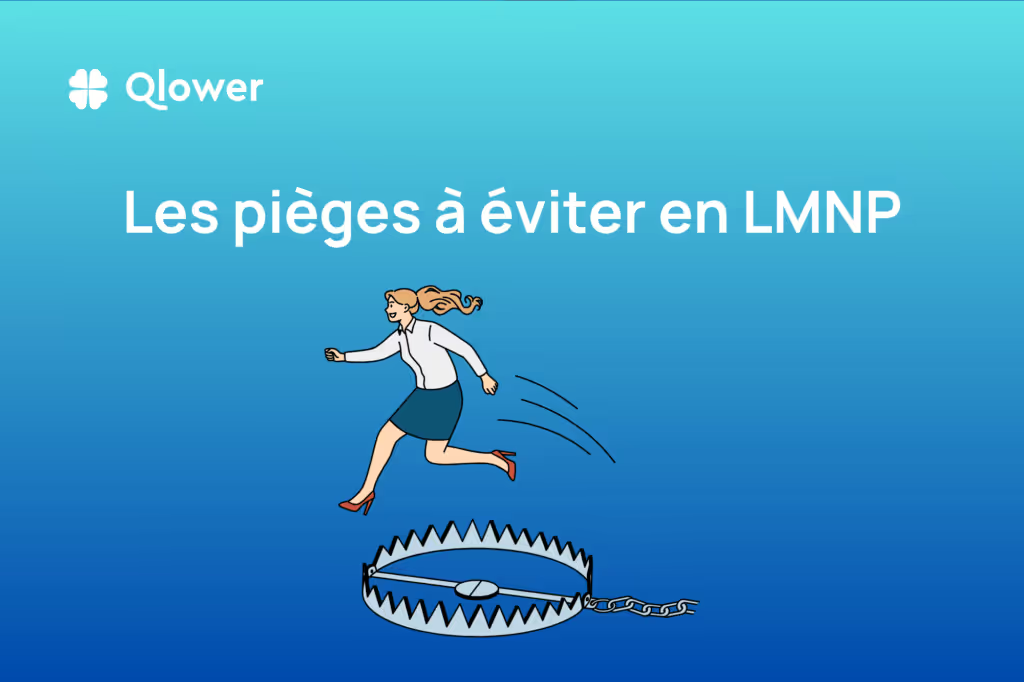
The pitfalls to avoid in LMNP
Investing in Non-Professional Furnished Rentals (LMNP) can be very profitable, but there are some pitfalls and mistakes to avoid. Good management, careful selection of assets and compliance with fiscal and administrative obligations are essential to maximize your investment and avoid problems. Here are the main pitfalls to avoid in LMNP.
Common mistakes in rental management
Rental management in LMNP requires attention and rigor. Here are some common mistakes to avoid:
- Wrong rent estimate : setting rents that are too high can lead to extended vacation periods, while renting too low reduces profitability.
- Neglect in the maintenance of the property : lack of maintenance can degrade the value of the property and negatively impact the tenant experience. It will then be more difficult to rent again.
- Inadequate tenant management : it is important to select tenants carefully and to manage rental relationships effectively to avoid unpaid bills and conflicts.
- Lack of monitoring of legislative developments : furnished rental laws and regulations may change. Staying informed is essential to comply with new requirements.
Read our complete article on PLF 2025
Wrong choice of real estate
The choice of real estate is decisive in the success of your LMNP investment. Avoid these mistakes:
- Ignore location : a poorly located property, in an area with little furnished rental demand or limited valuation prospects, may prove to be unprofitable.
- Underestimate the work required : acquiring a property requiring major work without a precise assessment of the cost can have a strong impact on profitability.
- Not considering rental potential : it is decisive to assess the rental potential of the property, taking into account the local market, demand, and housing characteristics.
To carry out your market and profitability study, it is recommended to contact local players and to consult rental ads similar to your project on the market.
Qlower allows you to give you a free market estimate of the rental value and the market value of your property, create your account
Neglect of fiscal and administrative obligations
Tax and administrative obligations are complex and their neglect can lead to serious consequences:
- Non-compliance with tax obligations : Non-compliance with tax returns and tax payments may result in penalties and late interest.
- Lack of knowledge of tax regimes : choosing the wrong tax regime (BIC-micro or Real regime) can have a major impact on the profitability of your investment. Even today, a majority of LMNPs declare to the micro-BIC due to a lack of knowledge or the absence of tax simulation.
- Forgetting accounting obligations : under the real regime, accurate accounting is necessary. Neglected accounting management can lead to errors in reporting income and expenses.
Non-Professional Furnished Rental (LMNP) represents an attractive and potentially profitable real estate investment opportunity. Indeed, the LMNP offers significant tax advantages, flexibility in rental management, and the possibility of investing in a variety of real estate properties. However, to succeed as a non-professional furnished renter, it is important to understand the nuances of status, to choose the tax regime wisely, to manage the rental effectively, and to comply with fiscal and administrative obligations.
Investing in LMNP, although demanding, offers attractive profitability prospects and is a viable option for diversifying a real estate investment portfolio. With the right approach and a thorough understanding of the key aspects of LMNP, investors can take full advantage of the opportunities offered by this attractive status.
Now all you have to do is get started! We are here to support you in this project and to answer all your questions with our expert advice. Feel free to contact Qlower anytime!


